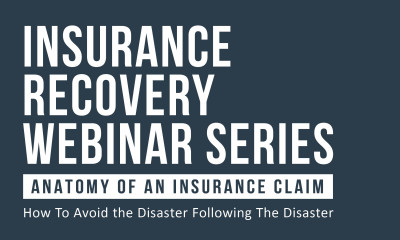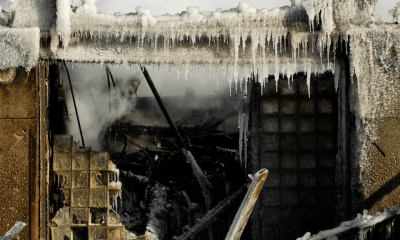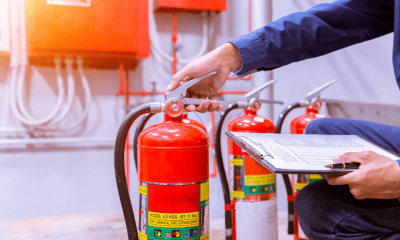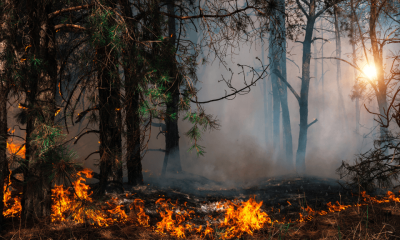September is National Preparedness Month - Here are Five Tips to Get Your Business Ready for a Disaster
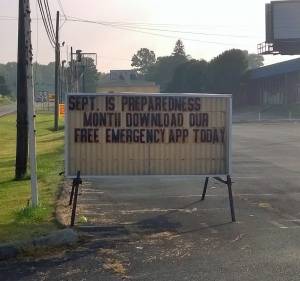 The Federal Emergency Management Association-sponsored National Preparedness Month occurs every September in order to remind Americans to get ready for the worst – a man-made or natural disaster. How can business owners make sure that their companies and employees are ready?
The Federal Emergency Management Association-sponsored National Preparedness Month occurs every September in order to remind Americans to get ready for the worst – a man-made or natural disaster. How can business owners make sure that their companies and employees are ready?
Even one extreme weather event or large fire can cause millions of dollars of property damage. Business owners need to know that disasters can strike any time, any place and make plans accordingly.
Carl Gross, Vice President at Globe Midwest™ Adjusters International
In honor of National Preparedness Month, we have put together five tips to get your organization ready.
1. Keep at least one fully stocked emergency kit.
It’s impossible to say for certain what conditions employees will endure after a disaster strikes but experts recommend that business owners prepare for three days of sheltering in place. Stocking bottled water, blankets, first aid kits, batteries, whistles, plastic sheeting, dust masks, duct tape, wrenches, pliers, battery-operated radios, fire extinguishers, non-perishable food and maps is a good start.
2. Know what your current property insurance policy covers.
Owners and managers should understand the basics such as what the policy exclusions are, how high the deductible is and which expenses will and won’t be reimbursed. This is also an opportunity to purchase additional coverage if you find out that you’re not happy with the details of your current policy. Even if you’ve never read your full insurance policy, you should have a good understanding of what it covers. One 30-minute call to your insurance broker or meeting with a public adjuster can make the difference between your business bouncing back after a disaster or closing its doors.
3. Put money aside for insurance deductibles.
Most insurance policies require policyholders to pay a deductible toward the damage. Once the insured has paid for the first amount of loss stated in the deducible clause, the insurance company pays the remainder, up to the limit of insurance provided. You should know how much that deductible will be and put that money aside in savings just in case you need to file a claim. It may vary depending on the cause of loss so you should find out what the highest limit is and save that amount.
4. Prepare your business property for severe weather
For business owners who also own and operate the property in which their business operates and for those who operate rental properties, making some repairs in advance may help the building withstand storms better than if the property is in disrepair when the storm hits. This can include removing any trees that may damage roofs or windows if they break, checking for loose shingles, cleaning gutters and downspouts, and installing storm shutters and/or impact glass on all openings around the building. If your property does not meet current construction industry standards, making some simple modifications can help to reduce property loss in the event of extreme weather.
5. Make a detailed business inventory
Taking pictures and/or videos of every room in your office and keeping them saved in the cloud or in an offsite location such as a safety deposit box, will help you create a record of your belongings if the building is destroyed in a disaster. Written lists in a Word document or Excel spreadsheet should also be recorded and updated whenever new equipment is purchased along with receipts for those items. Keeping detailed records both before and after the storm or fire is critical when filing an insurance claim. Of course, these lists can always be created after a disaster but not without taking up a lot of extra time, possibly missing many items and costing business owners a great deal of money in their final insurance payout.
We strongly recommend that business owners line up qualified experts before their property is damaged. You don’t want to wait until after the storm hits because licensed professionals -- such as public insurance adjusters to help them organize and submit their claim, restoration contractors to help them with cost estimates and repairs, and engineers to identify causes of damage and structural integrity – are typically inundated with new client requests after major disasters. Having an established relationship can really help to make sure that your claim becomes their top priority
Never plug extension cords into one another. For a list of #FireSafety tips, visit: https://adjustersinternational.com/common-fire-hazard-mistakes/





